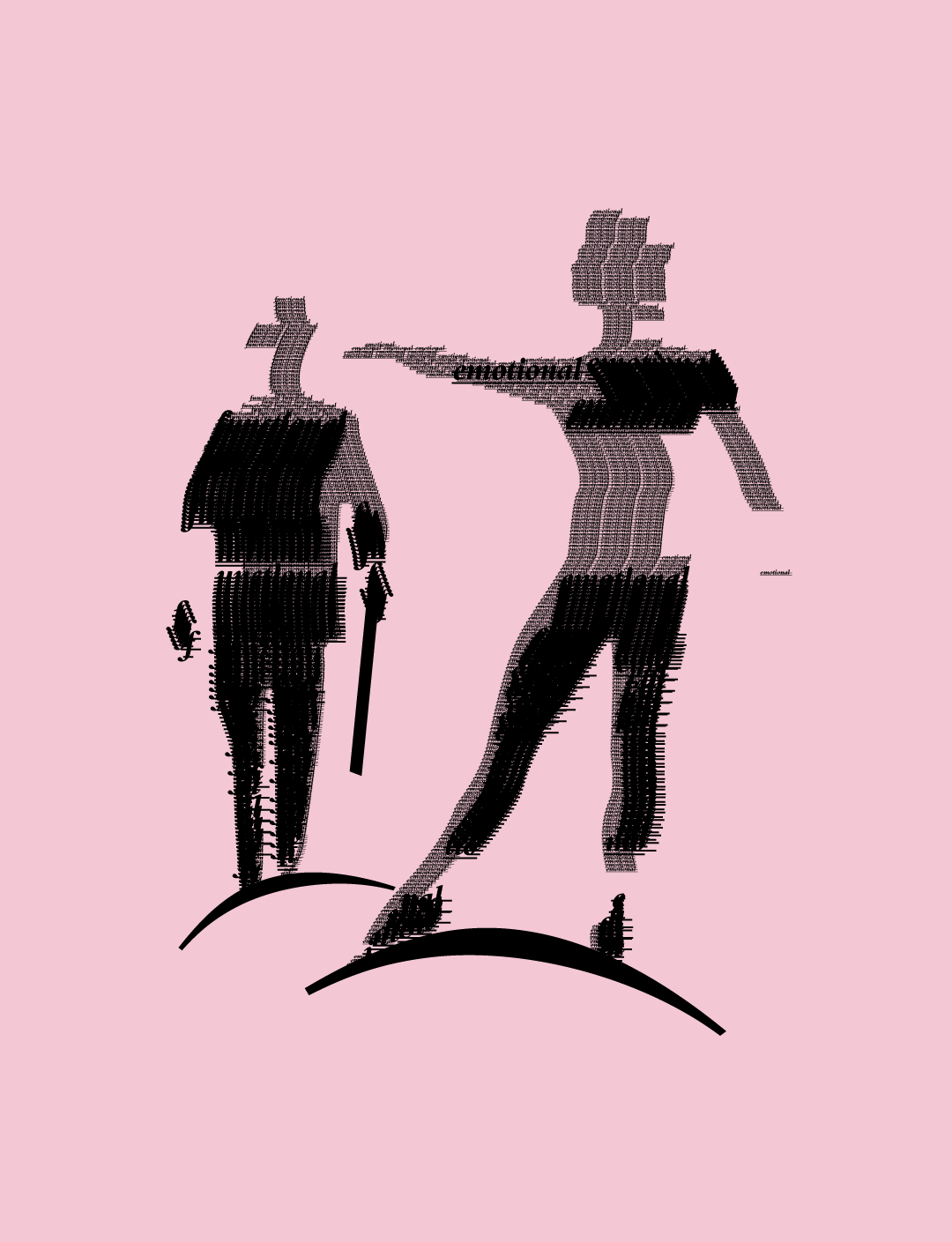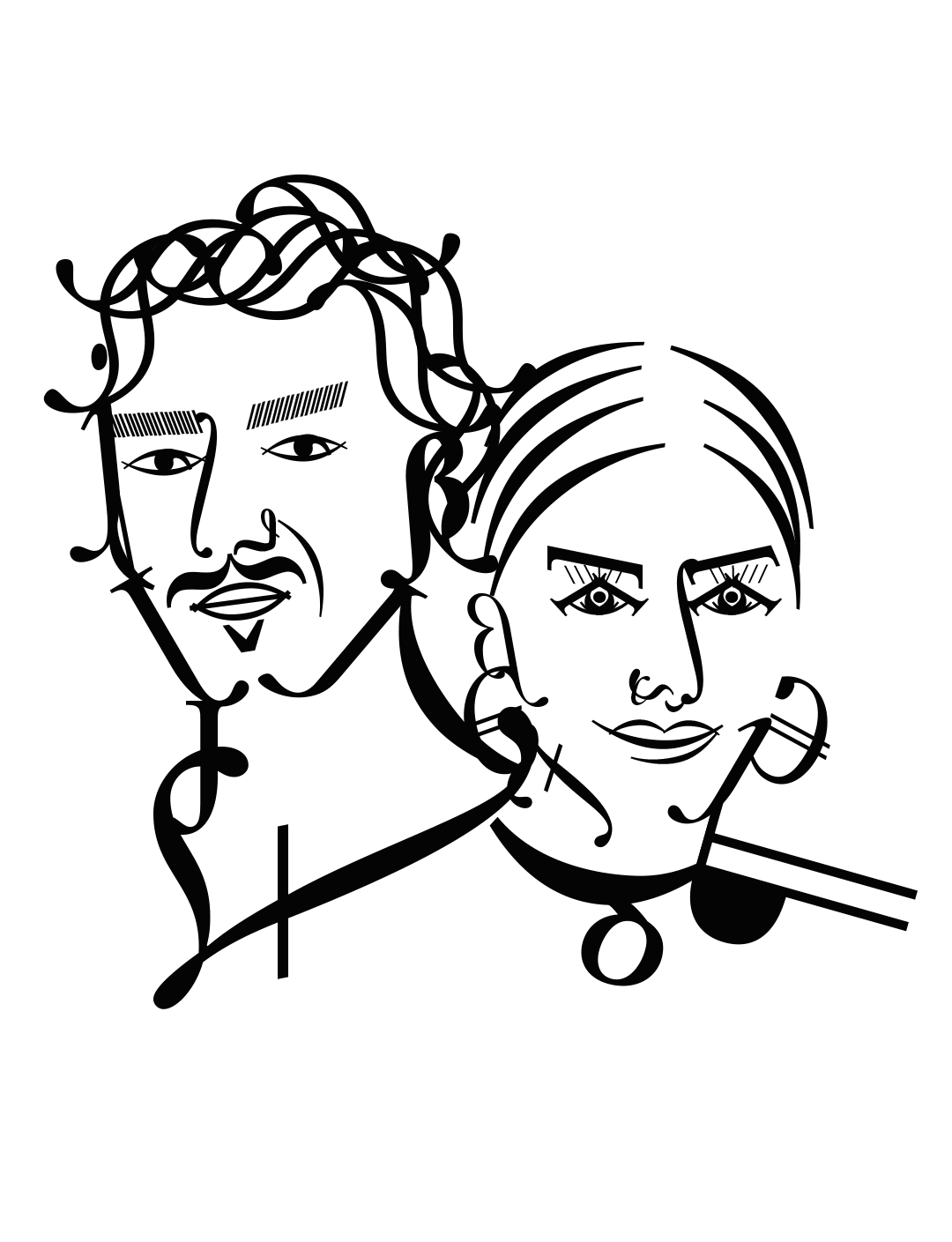Fleur and Felix--- 30 April 2016
By Lorenzo Princi
What do you two do?
Jean-Baptiste: What we do… we create apparel and jewellery in Sydney and I think we could pretty much just stop that sentence at “we create”. That’s pretty much-- everything we do is able creation and you know…
Rebecca: Yeah, pretty much just making things that we like.
Jean-Baptiste: Yeah so-- that we sell online pretty much. So we create visuals-- using different textiles, different fabrics.
Rebecca: Different techniques!
"We’re lucky enough to have parents who travelled a lot and since I was like ten we travelled every year to different places, far away and you know, meeting different people, different cultures. Bec’s had the same experience."
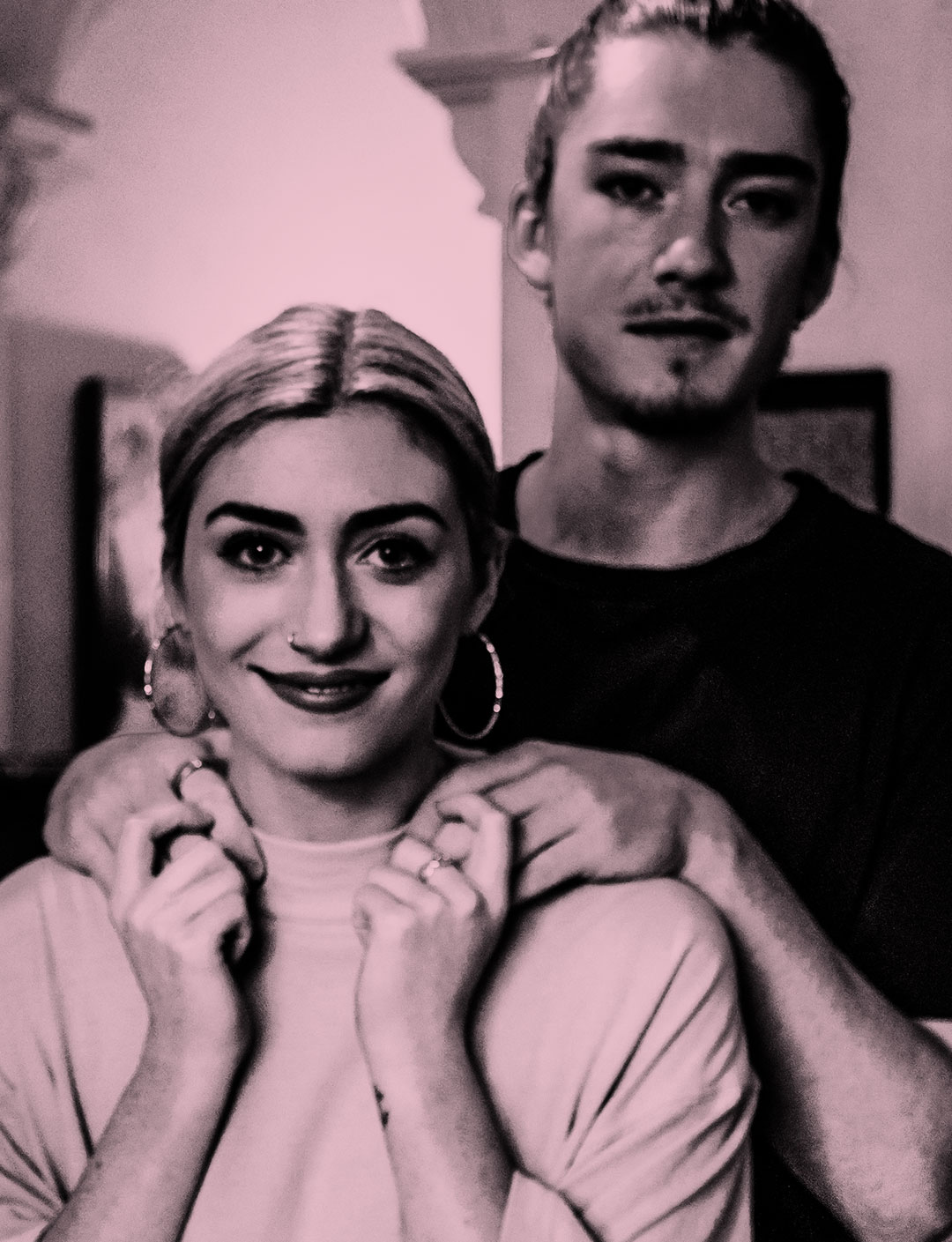
You’ve both decided to make Sydney your home. Jean-Baptiste from Paris and Bec from Canberra. How did that come about and why?
Rebecca: Yeah well I moved to Sydney first to study fashion design because there was a really good course here and there was a lot more opportunities than in Canberra and I’ve just stayed here since.
Jean-Baptiste: Yeah, as part of my business degree in France we had to finish our degree or do another degree in Australia, so I came to Sydney and we turned out to be living on the same floor [laughs] at University. Yeah and then you know, I think we started creating stuff together things were going well and lots of friends around decided to get a house and keep living the same way we’d been living at uni. Now it’s been evolving slowly-- yeah I don’t think it’s really been a decision I’d say-- I think it’s kind of been something that happens, you know, we did not sit down and say “hey, where do we want to live?” It was kind of like, “Okay you know we’re in Sydney,” you started another degree [turning to Rebecca] so we stayed.
Rebecca: Yep.
You have both done a fair bit of travelling. How has travel affected your outlooks on life and work?
Rebecca: I think travel is so important. The things you learn are a lot more than you would at uni or at a job. You learn a lot about life.
Jean-Baptiste: I think that’s one of the biggest points in common that we had-- we’re lucky enough to have parents who travelled a lot and since I was like ten we travelled every year to different places, far away and you know, meeting different people, different cultures. Bec’s had the same experience. When we travel together--
Rebecca: It’s a lot more than sightseeing.
Jean-Baptiste: Yeah, it’s never about you know just doing the guide-- what the guide says. It’s all about, “okay, who are we going to meet and what are we going to discover” you know? Really make the most of it, so… and recently we came back from a trip in Japan which was--
Rebecca: It was amazing!
Jean-Baptiste: Yeah and that was probably the most inspiring and relevant trip we did with Fleur and Felix.
Rebecca: Yep, definitely.
Jean-Baptiste: In terms of the culture there and the outlook on aesthetics and a lot of things are yeah, really something to look up to you know in everything we design and... So yeah I would say travel is a big, big part of what we do and what we want to do!
Fleur and Felix is an interesting idea: mixing progress operating ideas with an artisan product range. How did the idea for the business come about?
Rebecca: So… I really wanted a choker and I couldn’t find it anywhere! [Laughs]. So I decided to make it myself. Went out and bought the bits and pieces I needed, some of Dad’s old pliers and yeah, made it at home and since then I thought, why not, you know, see what can happen with it? I know a lot of people ask me where I got it so that’s when we started making more and we were like, “Wow! People like what we are creating.”
Jean-Baptiste: Yeah I remember I wasn’t bought on the idea at all [laughs]. “Yeah, you know I bought all this stuff to only make one” and I was “yeah cool like…” “I’m going to put one on Etsy” and I was like, “yeah, whatever you know? You're just going to mail it?”
Rebecca: “Yeah, like just in an envelope? How does it work?”
Jean-Baptiste: I remember we were in Canberra at the time and you posted it on Etsy [turning to Rebecca] and then you had the first order like, someone just ordered it and I was like, “why?” There’s no nothing, it’s just on there. It didn’t have-- no social media, didn’t have a website…
Rebecca: It was pretty shocking, it was like, “wow!”
Jean-Baptiste: It was a big revelation for us, it was like, "you know, not only you can create, you can, you know, make people aware of what you do and if they like it too, they can purchase it." Like that’s… yeah, if that purchase didn’t happen maybe we wouldn’t have started the business. For me it was like, “it actually works, you can sell stuff online.”
Rebecca: Power of the internet!
Jean-Baptiste: And then we started being a little more strategic about it and kind of like, “Where do we want to go with it. We just spend all the time making orders, maybe it’s time to reinvest and make the most of it.”
"I really wanted a choker and I couldn’t find it anywhere! So I decided to make it myself."
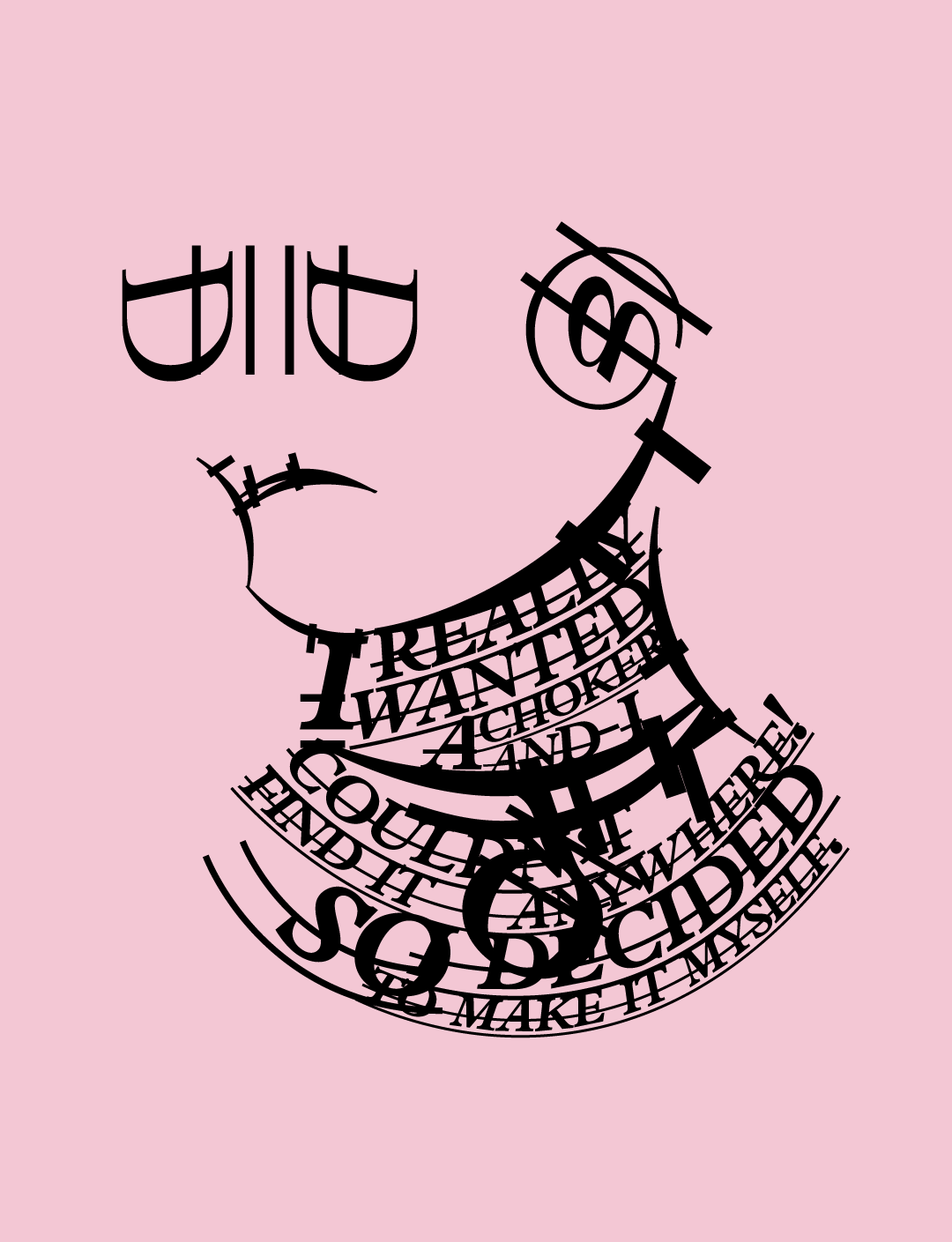
You're each leveraging your studies in one way or another to help the business; fashion and textile design; accounting as well as marketing which alludes to a traditional path and a sound understanding of theory and principle. However Fleur and Felix also leverages disruptive concepts - what are the challenges and benefits to running a business online?
Rebecca: I think that’s one thing you don’t learn at uni is how to run a business and the different aspects that come with it. A lot of dealing with different personalities, different platforms, there’s a lot-- just a lot that you have to really do to understand and I feel like yes, the fundamentals did come from what we learnt...
Jean-Baptiste: I think a lot of our business model is based on the frustration you [turning to Rebecca] had at uni.
Rebecca: Yep…
Jean-Baptiste: Because when Bec was doing fashion design I was doing my business course and you know, business course you kind of run through with it like-- your answer is right or wrong but when you’re doing any-- probably know yourself [Lorenzo] as a creative, when you hand in a piece of work it’s super subjective right? So sometimes you have a teachers who is going to say, “yeah, it’s amazing” and sometimes they're going to say is crap. But at the end of the day what would the customer say or you know, your target?
So it’s a bit-- you know there's a lot of technique and stuff involved which you need to understand but I think it was a bit frustrating to be limited in a way and just trying to break through barriers even though you’re in such a creative environment. Sometimes it’s even worse.
Rebecca: There are almost more limitations...
Jean-Baptiste: Exactly! Stuff you can’t and can do, stuff that’s been done plus stuff that’s not in the moment and we’re kind of like well… this is what I want to do.
Rebecca: This was really a chance to do what we wanted.
Jean-Baptiste: So after to you finished your fashion design course that’s when we started being like, “okay, that’s when we can make our own stuff and just do it-- learn from it.”
Rebecca: Started being more creative!
Jean-Baptiste: So I think that kind of shaped the business model that we had and maybe you [turning to Rebecca] want to talk a bit about Instagram and that it's a bit of a disruptive thing in itself.
Rebecca: Yeah well I guess because Instagram is basically just photos. That was a really good way for us to display exactly what we were doing compared to some other things like Facebook for example, where you have a whole lot of content and for us we wanted the focus just to be on the image and what we were doing, and that’s really helped us to grow.
Jean-Baptiste: I think on that there’s-- we kind of sat down and were like, “what do we want to do, we have all this stuff we want to display” and it’s easy to kind of fall into like, “ten best practices to start your business” [laughs] “it’s like, you need to open a Twitter account, a Facebook account, an Instagram account” and we were like, “well, I don’t really use Facebook anymore and I don’t really use Twitter but I really like Instagram.” And as a user you can really understand the power of the platform and being like yeah, I’ve seen stuff I liked, I clicked on the link and I purchased something and that’s kind of why we decided-- it’s a platform we use and we like we just want to be even more a part of it-- I think that’s why it came really native you know, it wasn’t pushing the product out and being, “hey, look at me” it was more like we just kept using what we were using except we were showcasing our stuff.
"This was really a chance to do what we wanted."
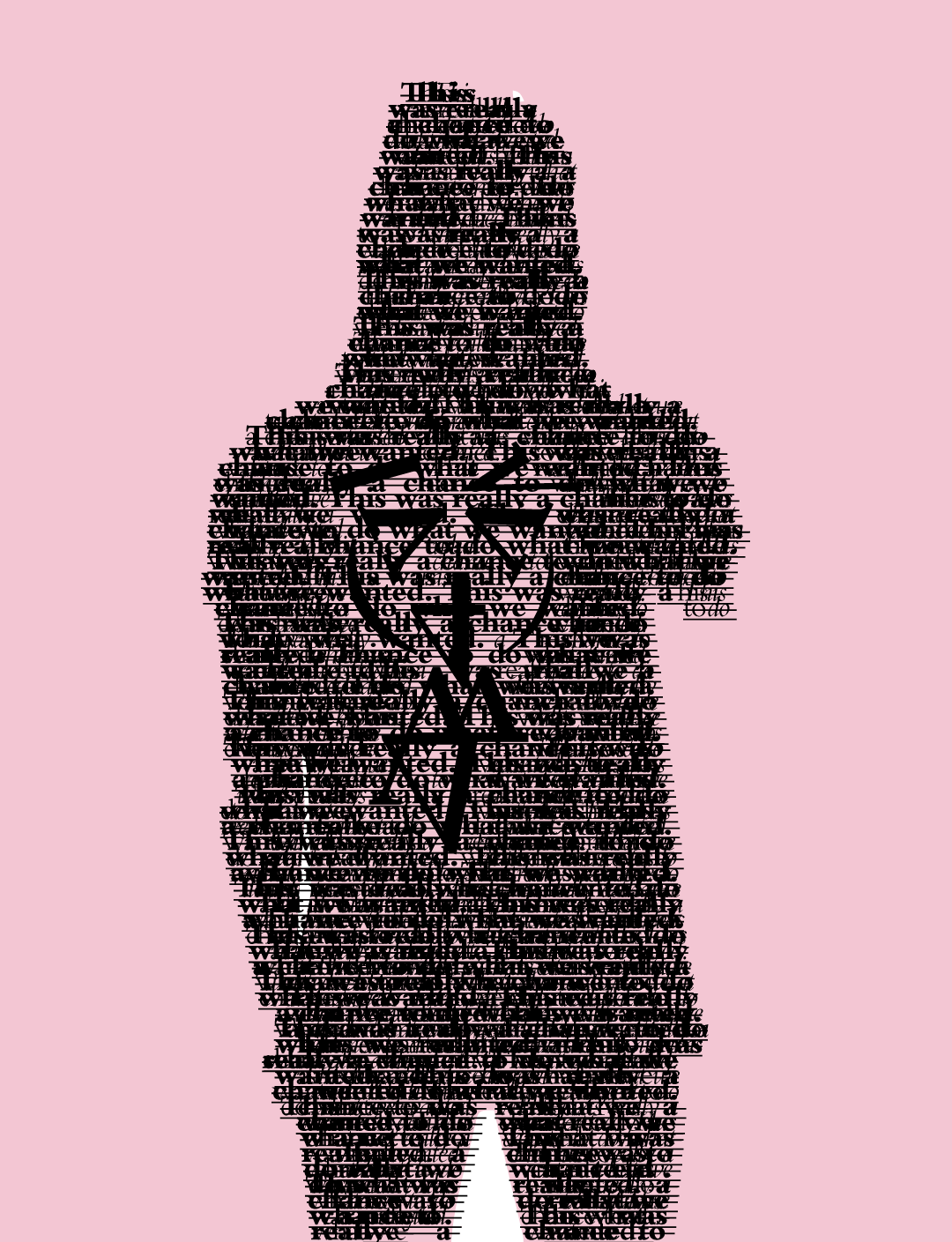
Fleur and Felix prides itself on being innovative. Starting with chokers, the range has continued to expand. How do you balance new ideas as opposed to stretching too far away from the core idea?
Jean-Baptiste: I think it’s hard because when you do something a lot, you get tired of it and especially-- I mean you know, if one painter has this great painting and you ask him to do it like ten thousand times for commission he’s going to hate it. [laughs] I think you know, we are trying to diversify our range and expand our core business in a way that we don’t get sick of what we sell and you know, that we don’t become-- not passionate about what we do and I think maybe also ties into you know the very different aspect that we have in the business, that we’re not doing it for the money.
And I think when you have a shop that you know, the product they started with you know-- we still have it but if one day we decide-- I wouldn’t be like you know, “oh no, we have to keep it” because it’s you know, what we started with and is doing really well. We really decide what we want to do and think about the customer and like, I don’t know, I always-- when it comes to jewellery I’m always asking Bec, like, “would you wear it?” and if you don’t then we’re not selling it! [laughs].
Rebecca: Yeah, I think also because there’s two of us it helps a lot. You know, if one of us is really focused on one thing and gets tired of it, you know JB (Jean-Baptiste) might be like, “no it’s still a really good idea” and I’ve just seen it too much. You know? We can bounce off each other like that.
"If one painter has this great painting and you ask him to do it like ten thousand times for commission he’s going to hate it."

Fleur and Felix leverages social media to build its brand and connect with it’s audience. Why do you believe this is important in the current global landscape?
Jean-Baptiste: Yeah, I think the way people interact with brands has changed you know? From one way, “take my commercial, take my advertising in your magazine” to like you know really a conversation and I think that’s where it becomes really interesting to use social media because not only do you show an image of a product but you can also know, you know, what people think of it and without seeking validation you can you know really create conversations...
Rebecca: Yeah it’s a lot more interactive, like we can reply to a comment from a potential customer straight away. Just have a conversation.
Jean-Baptiste: Yeah and just create relationships with some people. Message and be like, “hey would you be interested-- into doing a shoot or sending us some stuff…”
Rebecca: Yeah, we’ve met a lot of other creative people that way as well.
Jean-Baptiste: In that way it’s been great, using social media and I think-- you know, it tells a better story about your brand than just your website you know, just you're mag-- you magazine that you can release and “here’s my products” you know. I think social media has to be-- and it’s tricky because it’s changing a bit. Like now Instagram is regarded as being a bit fake and you know people are really focused-- it kind of like-- I think we starting to go to the next level where people just want real-time stuff and you know, obviously SnapChat plays a big part in that and we’ve seen that. We’ve been snapping all the days in Japan and we have massive engagement even though we never really used SnapChat other than that you know… massive response so…
Rebecca: They really-- we found that they were really interested in what we do outside of work as well which is another way of engaging.
Jean-Baptiste: Exactly, I think for a small business it’s a big strength to have because it’s easy for us, you know it’s-- we in the studio, we can snap and be like, “hey, sewing the T-Shirt” if you are Ralph Lauren it’s going to be harder to go to the factory and do that [laughs] so… I think yeah, small businesses can be better storytellers than a bigger brand and social media enables that in a way.
You're very connected to the customers, not just creating the products but offering custom work and fulfilling orders personally. How have you found that side of the work?
Rebecca: That was different, something we hadn’t experienced before. I mean, besides selling an item on eBay [laughs] but we’ve really had to think about things like packaging, dealing with the post, dealing with you know, even delays in orders. There’s been a lot to consider but at the same time we’re also-- that’s what improves us, dealing with that, being more efficient, yeah...
Jean-Baptiste: Yeah I think the next step is not having to handle-- at least packaging [laughs]. It’s fine when you have like, you know, a few orders a week but when you start ramping it up and you end up only doing packaging and orders and checking up and you know sending emails, yeah, this is when it’s like, “should we pause the site and do this stuff for a week and then reopen it?” It’s-- it’s interesting, I think we’ve gone that-- that’s where you learn a lot about yourself as well and you know us as a couple on how you interact with customers and I think we’ve always kind of been like, “how would I like to be treated if I just bought that online?” And we can really relate to the people and you know, it’s like, “hey my order hasn’t arrived. It’s been ten days” you know, “okay let’s just wait a bit and you know, unfortunately you didn’t order a tracking number [laughs] so we don’t know” but we always manage to find a solution and you know it’s been like-- it’s been really funny how people can get really scared that they’re not going to get it and you reply, you know, “if you don’t get it, we’ll send you a new one” and then it’s like, “thank you so much!” and you know, you transform like, an aggressive first contact to, like, a returning customer.
"Because of the Fast Fashion movement there is such a high turnover of products. People, I feel are looking for quality over quantity now."

You're squarely in the market orientated movement. Why do you think consumers are responding to this type of artisan, hand-made products?
Rebecca: I think because of the Fast Fashion movement there is such a high turnover of products. People, I feel are looking for quality over quantity now, so, if it is a smaller brand I think people find it more unique, more original and I think at the moment-in Australia at least-that’s really popular.
Jean-Baptiste: Yep, definitely, there’s a bit of a reverse cycle too. I think fifteen years ago it was just about having the brand new stuff and now you see like vintage stores-- well especially in Japan it was pretty much only vintage stores. So I think people are looking for uniqueness, I think in a world where it’s becoming different to differentiate yourself than before, like, I believe before you had like your job to differentiate yourself from someone else whereas now no one really knows what anyone’s job is [laughs]. There are so many different things people are-- and like we are too driven by the uniqueness of a product or a service that’s going to give you more an experience than just you know a piece of clothing that you're going to forget you know. So I think that’s what we are trying to do. Really give people something that they can say, “yeah, it’s a small brand in Sydney, they do everything themselves-- like it’s really cool” and that’s how we’d like to buy a product too. You know when I buy a product from a brand that’s like in the US and I know they make everything themselves that piece is going to mean more to me than something I buy at UniQlo or H&M-- it becomes less-- I think we focus more on the emotional than the functional.
Rebecca: Yep!
"I think people are looking for uniqueness, I think in a world where it’s becoming different to differentiate yourself."
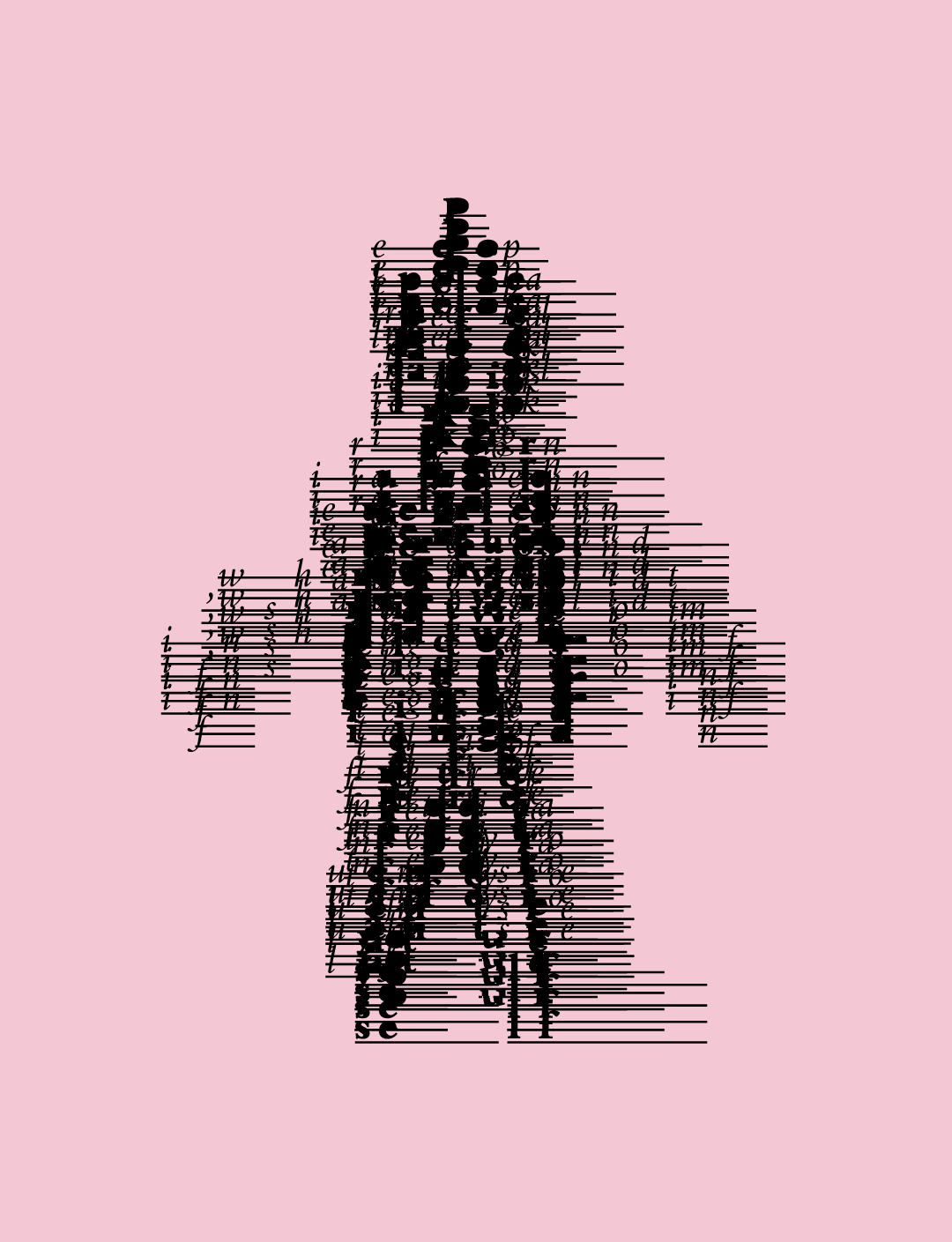
What's Next for Fleur and Felix
Rebecca: We’re always looking at expanding, doing more things, trying out new products. I think we’re pretty open with what-- you know, what we feel like doing. What inspires us so we’d like to do more clothing I think. It's just finding the time is hard but you know, it’s something we push to do.
Jean-Baptiste: Also, yeah-- on the clothing side it’s harder to find you know-- you can buy really nice stuff and make it, but then the time you invest in making that-- it’s not really translatable into something you can sell. So I think we are kind of trying to find a way to create but still be profitable as a business.
Rebecca: Find the balance.
Jean-Baptiste: You know it’s a really tough balance to-- making an awesome shirt but I don’t want to sell it for like eight hundred dollars, you know so...
Rebecca: And that’s what you're constantly competing with as a small business.
Jean-Baptiste: Exactly, so you’re kind of like, “where is the line where I can sell that for that much money but you know, still not make myself a slave of doing orders that are not realistic.” So, I think we are looking at doing some capsule collections of you know. We’re going to buy a roll of really nice fabric and just make ten pieces and that’ll be it. We’re also doing a collection soon for a few events that are coming up so, yeah, it should be good! That’s the main step-- is really creating a full on collection.
Rebecca: Yeah it’s really exciting, that’s the next big step [laughs].
Jean-Baptiste: Yeah, yeah, we’ll see when we get there, get a few drawings on the board.
Rebecca: Few rolls of fabric over there waiting to get cut up [laughs].
"we focus more on the emotional than the functional."
